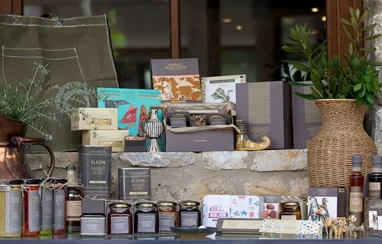By Nena Dimitriou
There’s an easy way to travel to Messinia in your mind, through your senses of taste and smell, without leaving your home, no matter how many thousands of miles that might be from the shores of Greece. Simply sprinkle a slice of sourdough bread with Navarino Icons Extra Virgin Olive Oil, top with some grated tomato and add a piece of spicy sfela cheese and some Navarino Icons Kalamon Olives in Extra Virgin Olive Oil on the side.
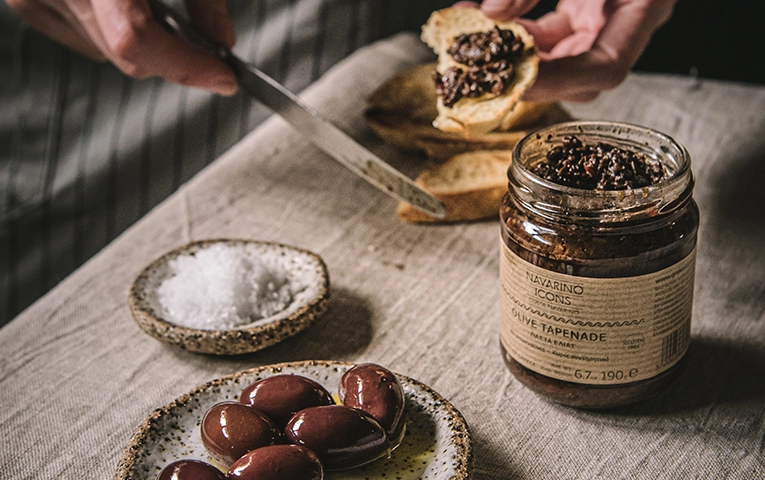
A fertile land
The bountiful soil of Messinia has been coveted throughout the centuries. Those who conquered this region, which was described by the ancient Greek playwright Euripides as “bountiful,” were quick to appreciate its rich soil and gentle climate, characterized by mild winters, warm summers, invigorating breezes, and life-giving rain. From the Homeric epics, we know that kings and visitors attending royal banquets in this land sipped local wine from golden cups, and that olive oil, too, played a special role in hospitality, with servants massaging it into the road-weary limbs of guests. Homer called the oil extracted from the ripened fruit of the olive tree “liquid gold,” and it was no coincidence that the storage rooms for olive oil in the Palace of Nestor (13th century BC) were next to the throne room. An entire culture revolved around the olive, which was closely associated with many aspects of life in ancient Messinia. Even today, after so many centuries, it’s still a local symbol of great value, a miracle of nature, the cornerstone of the Mediterranean diet with its proven health benefits, and this land’s greatest gift to the rest of the world.
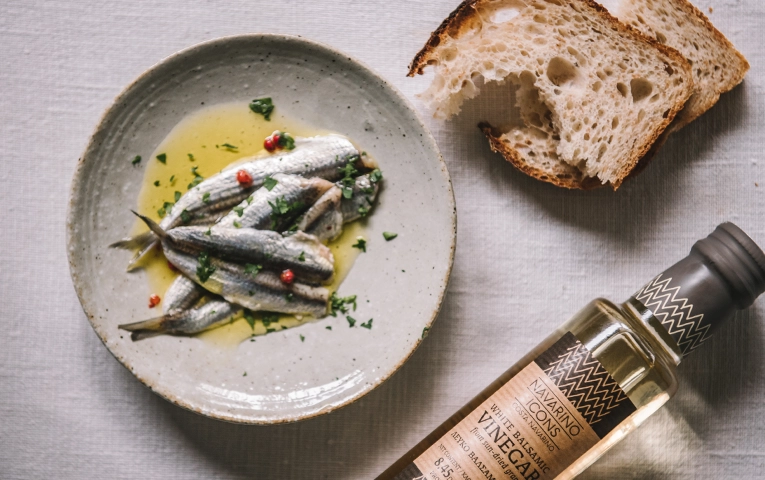
Preserving the heritage today
The gastronomic experience offered by Costa Navarino is based on authentic Messinian recipes and an abundance of fresh, organic local products. The farmers, custodians of rare, often little-known varieties of plants and other agricultural produce, apply best practices in their work, having inherited a profound respect for their land.
They plant native crops and patiently wait for the perfect time to harvest them. At the same time, the Captain Vassilis and Carmen Constantakopoulos Foundation has been diligently engaged in documenting, studying, safeguarding, showcasing, and promoting the gastronomic legacy of Messinia through the establishment of the extensive Virtual Museum of the Messinian Diet. Thanks in part to its endeavors, the captivating local cuisine, lovingly prepared in households, tavernas, and restaurants, continues to thrive and win admirers worldwide.
Delectable Messinian treats
On the dining tables of Messinian families, delicious village-style bread and barley rusks are never absent. Breakfast consists of quality dairy products made mainly with goat’s or sheep’s milk, including strained yogurt served with pure local honey carrying the flavor of the nectars of local plants. Pasteli, a traditional Messinian confection made with just two super foods, the finest honey and the best sesame seeds, for centuries a symbol of fertility, is today a daily snack enjoyed by all. Plump table olives accompany most dishes, while the sea delivers outstanding fish and shellfish. Dozens of types of wild greens sold at outdoor markets are a constant reminder of how the bounty of this land can be so humble and yet so delicious. Vegetables hold pride of place in most kitchens, and are served either raw or cooked in simple, traditional recipes. Their concentrated flavor requires no culinary tricks to enhance their tastiness. Indeed, in order to enjoy certain products even when they are not in season, Messinians keep fruits and vegetable in jars, simply adding a natural preservative such as olive oil, vinegar or salt. The abundance of fruit has resulted in celebrated preserves and marmalades delivering explosions of flavors, from orange and mandarin to strawberry, fig and olive; these sweet treats are served at gatherings of friends and family, or as a daily accompaniment to afternoon coffee.
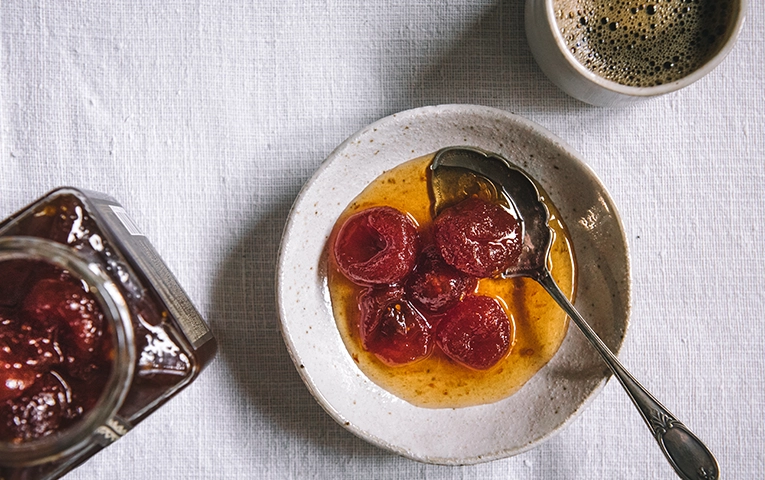
This is the Messinian food model, which also happens to be representative of the Mediterranean diet, dominant for centuries in this corner of the Peloponnese as a way to make full use of local produce. Studies have shown that this Mediterranean diet, espoused by Costa Navarino through its restaurants and its products, is one of the most beneficial nutritional approaches available; it helps prevent heart disease by lowering “bad” cholesterol levels while promoting longevity.
Bringing the flavors home
The products of Navarino Icons enjoy a huge competitive advantage; they are local to this land, and part of an age-old culinary tradition. Each Navarino Icons product contains, in addition to gifts from the Messinian soil, the passion and the wisdom of people who have been cultivating that soil as part of a proud culinary heritage stretching back 4,500 years. The pure raw ingredients of the region, the traditional methods of cultivation, and the limited scale of preparation and production, together with the benefits of the Mediterranean diet, all come together in the Navarino Icons range of products.
Olive oil looms large in the Costa Navarino gastronomic experience. The Messinian climate imparts special characteristics to the acclaimed Kalamon table olives and to the Koroneiki variety used to produce the delicious extra virgin olive oil, distinguished – according to international studies – for its nutritional value and health benefits, thanks to its high polyphenol content. The olives are harvested by gently shaking the branches of centuries-old trees. Within an hour, they’re at the press, where they undergo cold extraction and malaxation for less than 20 minutes to ensure that Navarino Icons Extra Virgin Olive Oil, with an acidity level of less than 0.3%, retains all the flavor and aroma of the healthful Koroneiki variety.
Navarino Icons Kalamon Olives in Extra Virgin Olive Oil are handpicked; they deliver a deeply concentrated flavor, as well as high levels of vitamin E, monounsaturated fatty acids and antioxidants, all of which have a number of health benefits such as reducing “bad” cholesterol, helping prevent certain types of cancer, and assisting the heart to function properly. In addition, they are the perfect appetizer or accompaniment to a wide range of Mediterranean dishes.
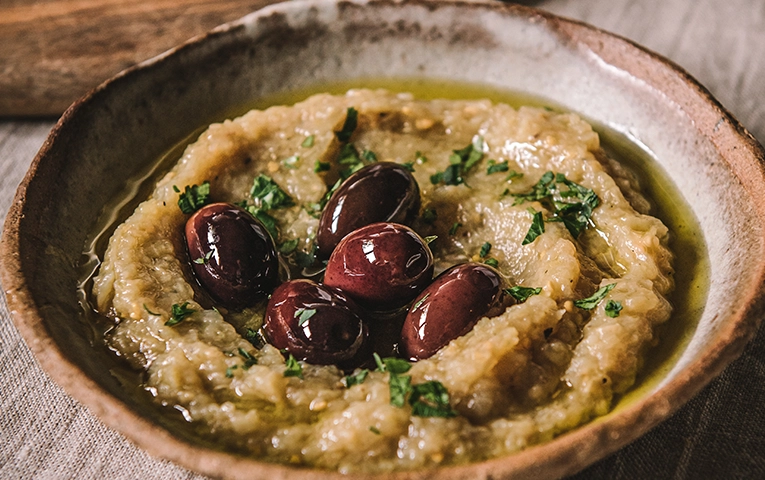
Navarino Icons Pure Greek Honey with honeycomb is produced by tireless bees that harvest nectar and pollen from the rich flora of the region. This honey is notable for its vitamins, minerals and phenolic compounds. High in antioxidants, it also has anti-bacterial properties, which are conducive to good health in that they enhance the effectiveness of the immune system. One spoonful in a cup of tea flavors the drink and releases heady botanical aromas.
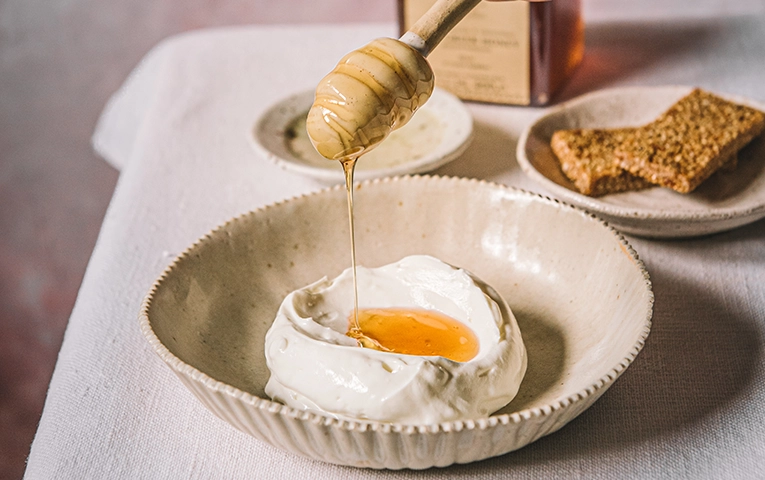
Navarino Icons Pasteli with Sesame Seeds & Honey is rich in vitamin E, calcium, phosphorus, potassium, magnesium and iron, while the brand’s marmalades and sauces, made according to traditional recipes from the finest fruits of each harvest and without any preservatives, pair perfectly with any meal – from breakfast to dinner.
Great tastes and great memories are yours for the asking, but what’s most important is that the select products of Navarino Icons provide you with all the ingredients and the inspiration to adopt a healthier lifestyle and enjoy the many tasty benefits of the Mediterranean diet.
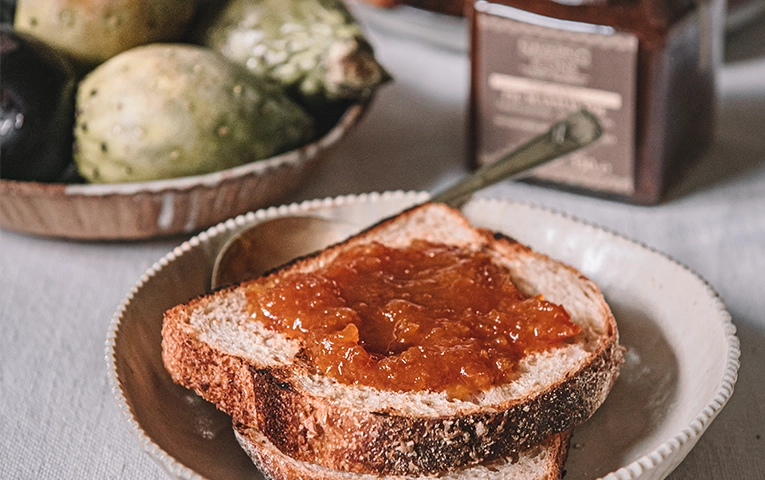
Produced locally, available globally
The authentic food products of Navarino Icons fly all over the world on major international airlines such as Air Canada, Cathay Pacific and Aegean Airlines, and are available at some of the finest food halls, department stores and e-shops, including City Super, Wholefoods, Gebr. Heinemann, Julius Meinl, Zingerman’s Delicatessen, Eli Zabar, and Qatar Duty Free.
You can also purchase them at Costa Navarino (Kafenio & Deli), at over 50 stores in Athens including liquor stores and delicatessens, at the Hellenic Duty Free Shops, or online at grekaicons.gr
[Edited version of an article published in Costa Navarino Stories, 2023]

